To love is to really resist
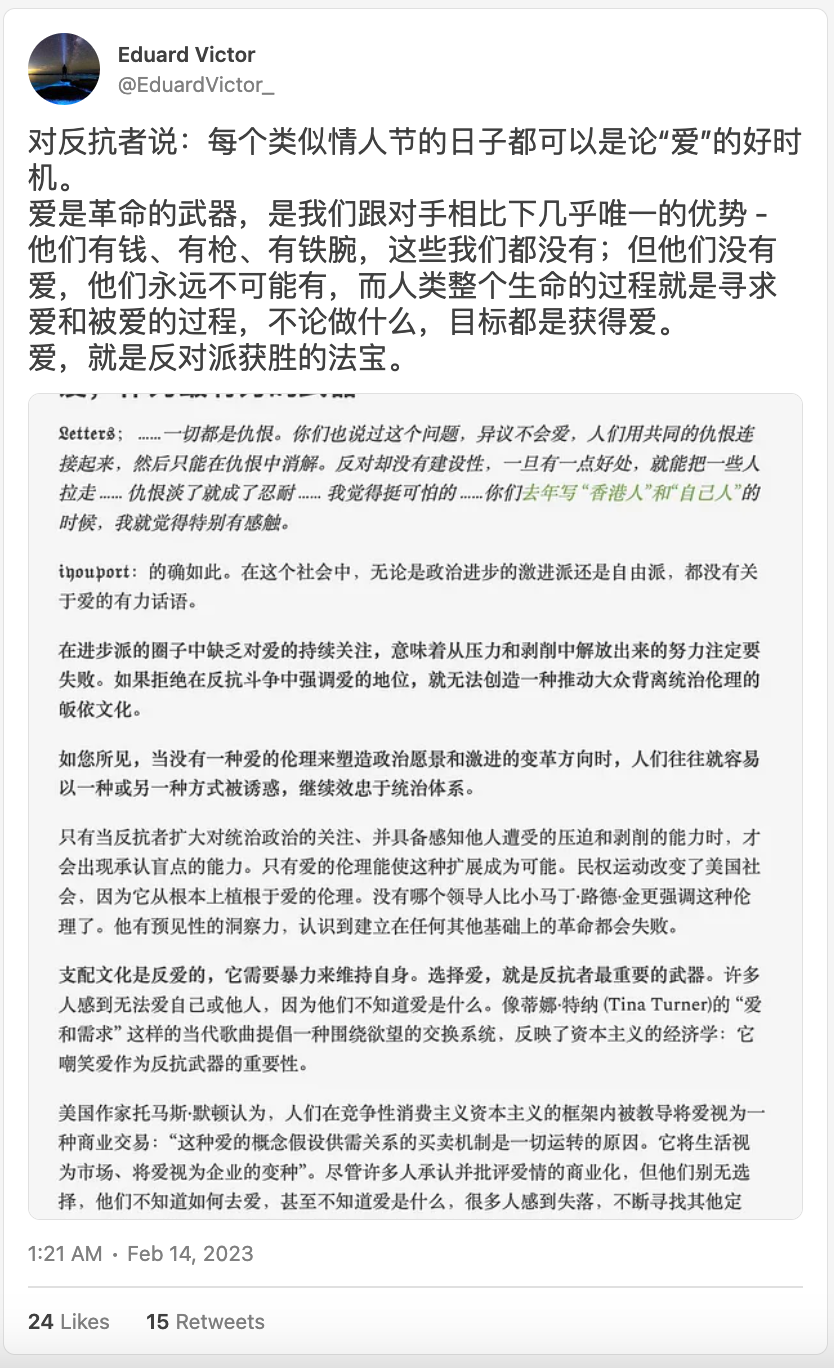
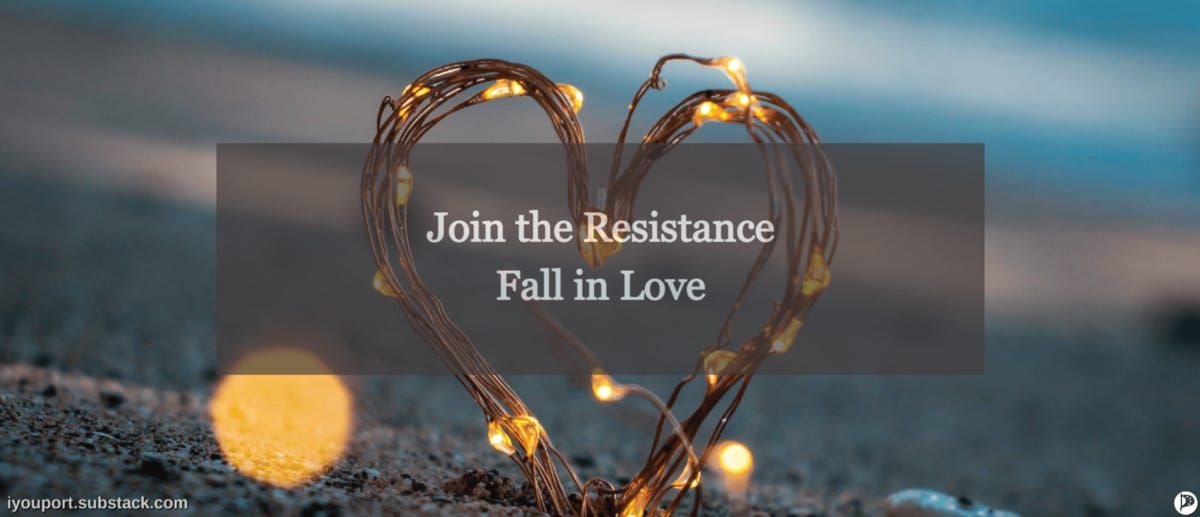
it's a season of love
The smell of couples is in the air
lonely people are shameful
it's a season of love
everyone should smile at each other
Hug, hug, that's fine
life blooms like a flower
we can't let ourselves wither
no choice we have to fall in love
—— Chinese pop song "Lonely people are shameful"
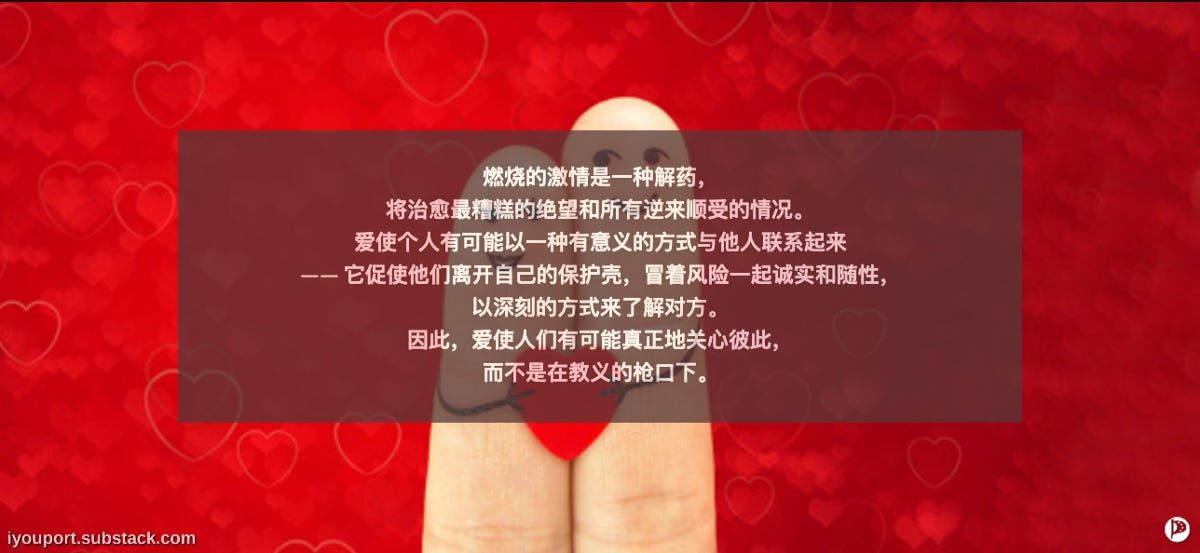
[The following text is from Baltimore-based psychotherapist Colette Shade. State in the first person. 】
Sex and relationships have always been important topics in therapy. Whether the issue is conflict with a partner or spouse, deciding whether to stay in a relationship, pain and confusion after a breakup or divorce, frustrations with dating and single life, or questions about sexuality, therapy can provide an intimate and relatively objective space to gain insight, and learn some skills.
But the thing is, we don't have sex or relationships in a vacuum. We date, have sex, break up, marry, divorce, procreate, and communicate under social and economic conditions. Therapeutic techniques like "I" statements, lists of values, and so-called DEAR MAN skills may make relationships more manageable, but capitalism still manipulates you in countless ways when it comes to intimacy. For this reason, you cannot solve relationship problems that are conditioned by the entire social environment through simple "therapy".
[Note: Dialectical Behavior Therapy (DBT) claims to teach people how to get what they want. Observation (Mindful), performance confidence (Appear Confident), negotiation and compromise (Negotiate), collectively known as "DEAR MAN". 】
As I 've written before in the Tribune, capitalism makes life far more stressful than it needs to be. Most people are struggling in a society where the cost of living is soaring and most people are working all the time just to pay for basic survival necessities. We are short on both time and money, and this double scarcity can cause serious problems with sex and relationships.
In a 2009 study published in the journal Family Relations, researchers found that "spouses' evaluations of conflicts over money are more intense and significant than other conflict topics. They last longer and more often involve previous discussed issues, and have a higher current and long-term importance to the couple's relationship". As recently as February 2022, The Independent reported on a UK study that found that nearly two-thirds of people admit to arguing with their partners over money; a third admit to being financially conservative with their partners Secrets, such as savings or debts— prove that financial stress has the ability to undermine the fundamentals of good relationship management, such as communication and openness. When that stress is exacerbated byoverwork , it can be even harder to remove the issue of financial stress from a relationship , which often happens.
The problem of time scarcity becomes more prevalent when people are involved in any kind of non-monogamous relationship—open relationships, sexual permissiveness, or polygamy. A growing number of therapists claim to be sexually active, offering expertise on these lifestyles and presenting them as empowering alternatives to the status quo. On one occasion, a few years ago, a therapist asked me if I would consider an open relationship as an alternative to an unhappy relationship I felt stuck in. I smiled at her: "Where do I have time?"
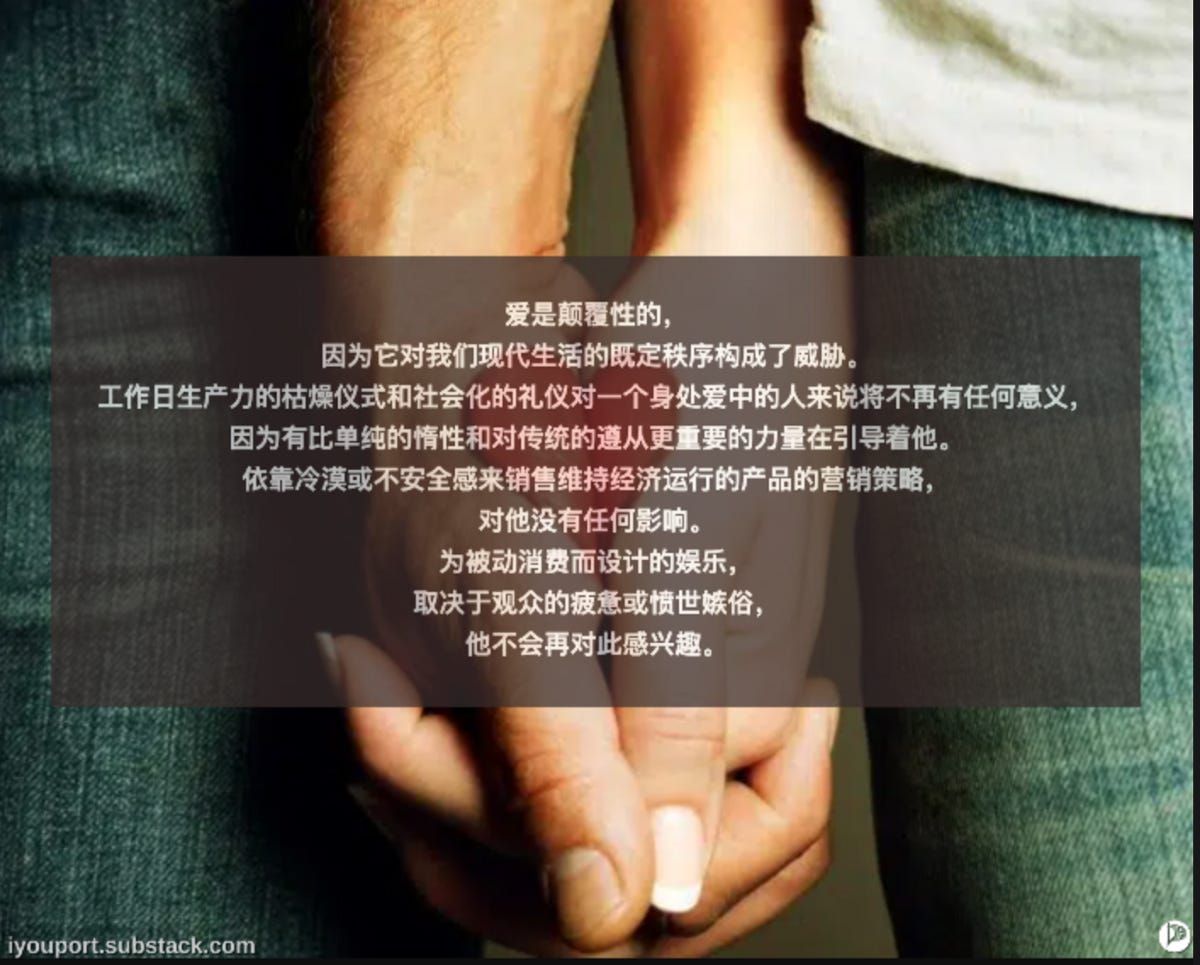
The speed at which a relationship progresses can also be affected by economic factors. Expensive rents often prompt young couples to move in together before they feel truly ready: In London alone, tenants are facing record rents amid a cost of living crisis, while in September 2021, rents outside London are the highest since 2008. Living with a partner is often a way of mitigating this. Economic factors, in turn, prevent people from leaving a relationship in which they no longer feel happy, let alone an abusive one. Therapists often find themselves helping clients navigate safety in situations of interpersonal violence—but how do you make safe choices for yourself when the options are either abuse or homelessness ?
And being single. As author Anne Helen Petersen has observed , the inability to share the costs of housing, utilities, household supplies, and more puts single people at a financial disadvantage compared to those in a relationship. In the U.S., single people pay more in taxes, and marriage is the only surefire way to enroll in a good health insurance plan. A 2013 study she cited estimated that a single woman earning $40,000 a year would pay nearly $500,000 more in housing, health care and other costs over her lifetime than a married woman earning the same salary . Given the choice, why don't you stay in a bad relationship?
The solution to these kinds of problems often comes down to a "more money and more time" question. For example, one of the many knock-on effects that financial stress and overwork can have is a change in libido. In 2017, the small town of Overtornea in Sweden came up with the idea of paid time off in response to the rising average age of the population — and while the idea is patently silly, it actually shows the kind of substance that can have a positive impact on relationships method. A more realistic explanation might come in the form of a four-day workweek with no pay cut , which would allow individuals more time to relax and cultivate the physical and emotional elements of their relationship. In order to relieve some of the financial pressure on a relationship, one can simply think of the need for a higher salary .
No matter what kinds of relationships we have—not just romantic ones, but with friends and family—the conditions of capitalism play a role in our ability to maintain and nurture these relationships by depriving us of time , and reward us with barely adequate compensation. That’s not to say that abolishing capitalism will solve all problems of the heart – but there are clear benefits to creating a world that values the freedom and well-being of all over the wealth of the few.
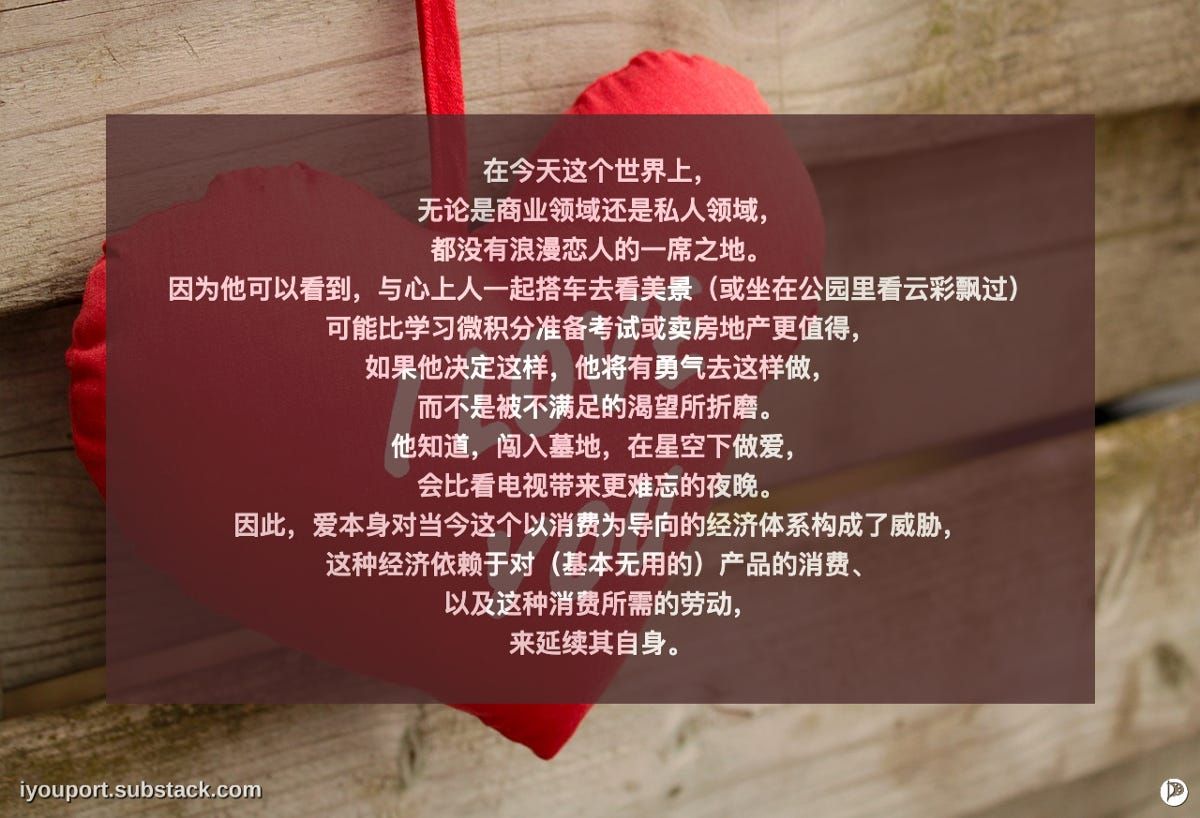
Entering into love is a fundamentally revolutionary act, a prerequisite for resistance in today's dull, socially restrictive, culturally austere world.
Love changes the world.
A person in love finds that where she once felt bored, now he feels passion; where she once felt complacent, she is now excited and can initiate confident action.
A world that once seemed empty and dull becomes full of meaning, exciting and rewarding, majestic and dangerous.
To the one in love, life is a gift, an adventure with the highest stakes; every moment unforgettable, heartbreaking in all its ephemeral splendor. A man who once felt disoriented, alienated, and confused will know exactly what he wants when he falls in love. Suddenly, existence has meaning for him; suddenly, he feels the value of existence, even honorable and noble.
Burning passion is the antidote that will cure the worst of despair and all resignation.
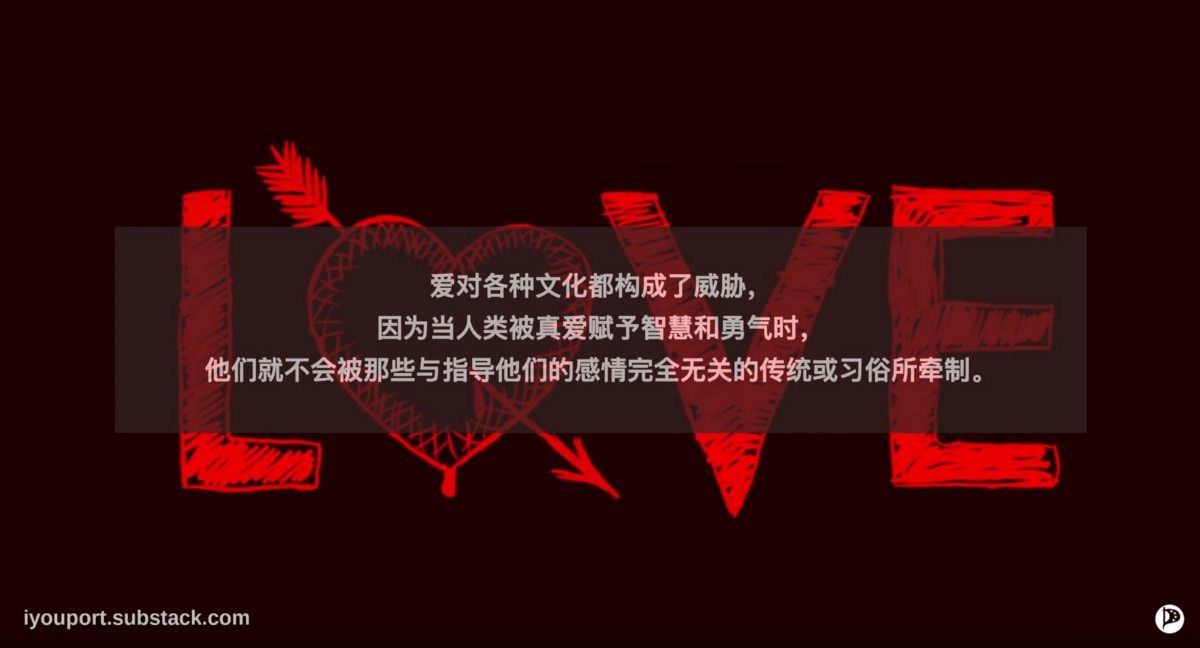
Love makes it possible for individuals to connect with others in a meaningful way—it pushes them to leave their protective shell and take risks to be honest and casual together to get to know each other in a profound way.
Thus, love makes it possible for people to genuinely care about each other and not be at the gunpoint of Christian doctrine.
But at the same time, it removes the Beloved from the routine of everyday life and separates her from 'other humans'. She would feel that she was far removed from the human herd, that she lived in a world completely different from theirs.
In this sense, love is subversive because it poses a threat to the established order of our modern lives.
The dry rituals of workday productivity and the rituals of socialization will no longer mean anything to a man in love, for he is guided by forces greater than mere inertia and conformity to tradition.
Marketing tactics that rely on apathy or insecurity to sell products that keep the economy going have no bearing on him. Entertainment designed for passive consumption, depending on how tired or cynical the viewer is, he will no longer be interested in it.

In today's world, whether in business or in private, there is no place for romantic lovers. Because he can see that a ride with his sweetheart to see the scenery (or sit in the park and watch the clouds go by) might be more worthwhile than studying calculus for a test or selling real estate, and if he decides to do so, he will have the courage to do so, Instead of being tormented by unsatisfied cravings. He knew that breaking into a cemetery and having sex under the stars would lead to a more memorable evening than watching TV. Love itself thus poses a threat to today's consumption-oriented economic system, which depends on the consumption of (basically useless) products, and the labor required for such consumption, to perpetuate itself.
Likewise, love poses a threat to the current political system, because it is difficult to convince a person who is rich in personal relationships to be willing to fight and die for something as abstract as " country "; for that matter, it may even be difficult Convince him to pay his taxes. Love poses a threat to all cultures, because when human beings are endowed with wisdom and courage by true love, they are not held back by traditions or customs that have nothing to do with guiding their feelings.
Love is even a threat to our society itself. Passionate love is ignored and feared by the bourgeoisie because it poses a great danger to the stability and pretense they covet.
Love does not allow lies, no falsehoods, not even any 'polite' half-truths , but bares all emotion and reveals secrets that domesticated men and women cannot bear.
You can't lie about your emotional and sexual responses; situations or ideas excite or repel you whether you like it or not, whether it's polite, whether it's desirable or not.
One cannot be a lover and a (terribly) responsible, (terribly) respected member of today's society at the same time; because love pushes you to do things that are not "responsible" or "respectable".

True love is irresponsible, irresistible, rebellious, contemptuous of cowardice, dangerous to the lover and others around her, for it serves only one master: the passion that makes the heart beat faster .
It despises everything else, be it self-preservation, conformity, or shame.
Love drives men and women toward heroism, but also toward antiheroism—toward behavior that requires no justification for the loved one.
Because the man in love speaks a different moral and emotional language than the typical bourgeois man. The average bourgeois man has no overwhelming, burning desires. What is even more tragic is that all the ordinary bourgeois man knows is the silent despair that comes from his family, his school, his employer, his country, and his culture, which he has pursued all his life. He sets goals without ever considering what needs and desires he himself may have. Without the guidance of the fire of desire, he has no standard by which to judge his own right and wrong. Therefore, he is forced to adopt some dogma or doctrine to guide his life.
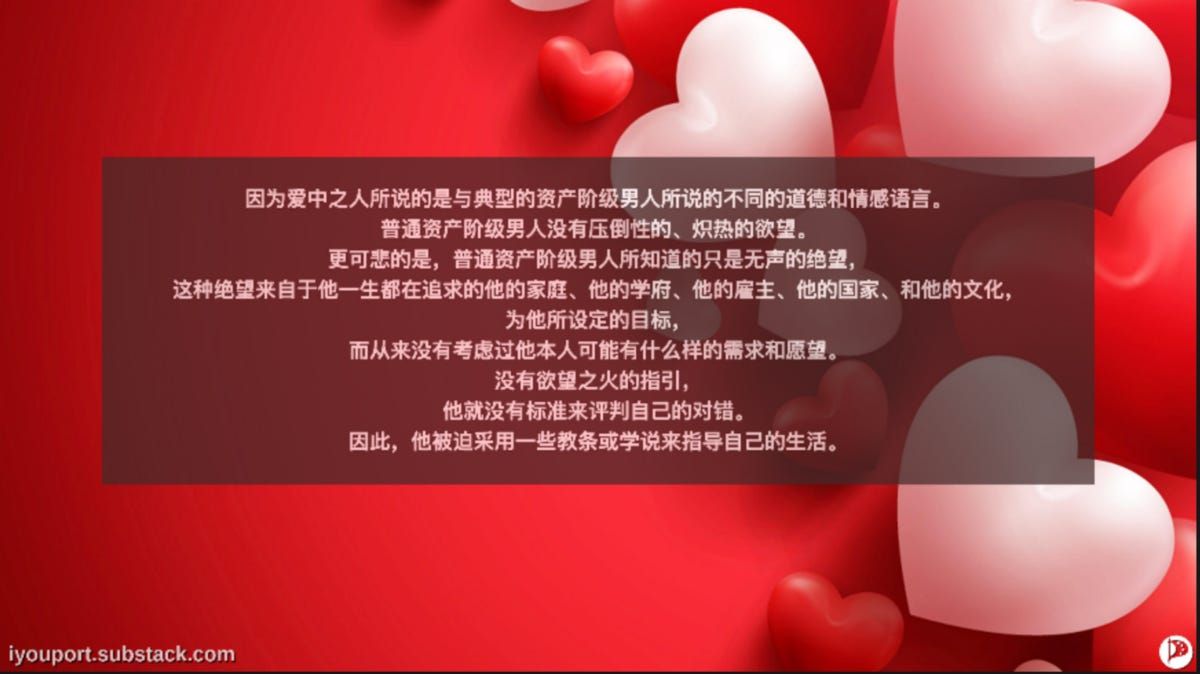
There are all kinds of morality to choose from in the marketplace of ideas, but it doesn't matter which morality a person accepts, what matters is that he chooses any one of them, and that's because he has confidence in himself and his own morality. Life felt at a loss, and he felt he needed to be guided.
How many men and women have never realized that they can choose their own destiny? Just because they no longer have any other thoughts, and let life wander in a dull haze, thinking and acting only according to the laws taught to them by the system...
But the one in love needs no prefabricated principles to guide her; her own desires determine what is right and what is wrong, for her heart guides her through life. She sees beauty and meaning in the world because her desires paint it in these colors. She needs no dogma, no moral system, no precepts and orders, because she knows what to do without being instructed.
Therefore, the person in love does pose a considerable threat to this real society——
- What would happen if everyone decided for himself what was right and what was wrong, regardless of conventional morality?
- What if everyone did what they really wanted to do and had the courage to face any consequences?
- What if everyone feared the loveless, lifeless monotony more than they feared adventure, more than they feared hunger or cold or danger?
- What if everyone put aside their so-called "responsibility" and "common sense" and dared to pursue their wildest dreams, place the bets high, and live each day as if it was their last!
Please think about it, what kind of place would the world be if this could be done?
Of course, it won't be the same as it is now - it's a very real fact that those guys from the "mainstream" are both maintainers and victims of the status quo, and they fear change.
So despite the stereotypes used by the media to sell toothpaste and honeymoon suites, true passionate love is never encouraged in our culture.
It is not considered desirable to be "carried away by emotion"; instead, we are taught to always be "on the alert" lest we be "led astray" by our own hearts.
Instead of being encouraged to have the courage to face the consequences of the risks we take in pursuit of our own inner desires, we are exhorted not to take risks at all, to be "responsible."
And love itself is regulated, whether based on gender or race or even class.
Men and women who have entered into a legal/religious contract with each other are not allowed to fall in love with other people even if they no longer feel any passion for their marriage partner.
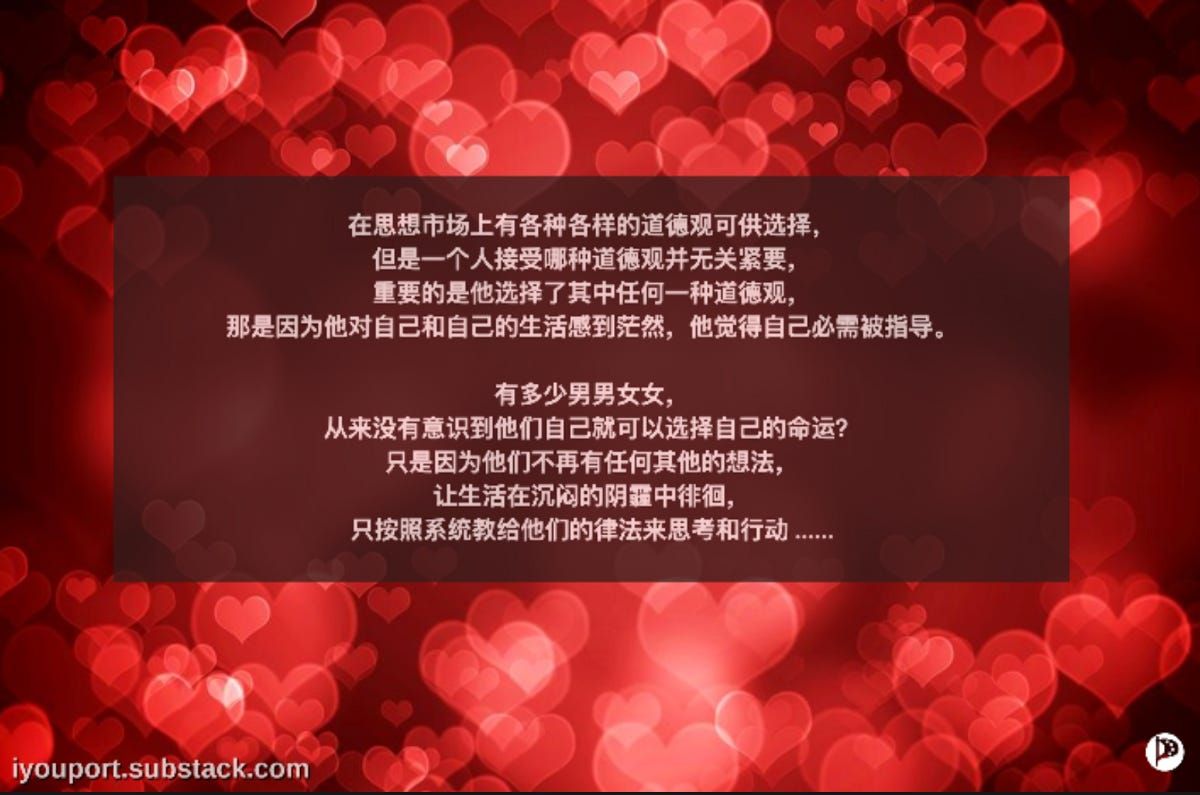
Today, love as most of us know it is just a carefully prescribed and pre-set ritual that happens on Friday nights in expensive movie theaters and restaurants, something that fills the pockets of entertainment shareholders, this regulated Free, commercialized "love" is nothing like the passionate, burning love that devours someone who is truly in love. It is these limitations, expectations, and regulations that kill true love; for love is a wild flower that never grows within the confines for which it was intended, but only where it is least expected.
We must fight against these cultural constraints that weaken and stifle our desires. Because it is love that gives meaning to life, desire makes it possible for us to give meaning to our existence and find purpose in our lives.
Without these, we have no way to decide how to live, but to submit to some authority, to some god, monarch, or teachings that dictate what we do and how we do it, without bringing us satisfy.
So love today, love men, love women, love music, love ambition, love yourself... love life!
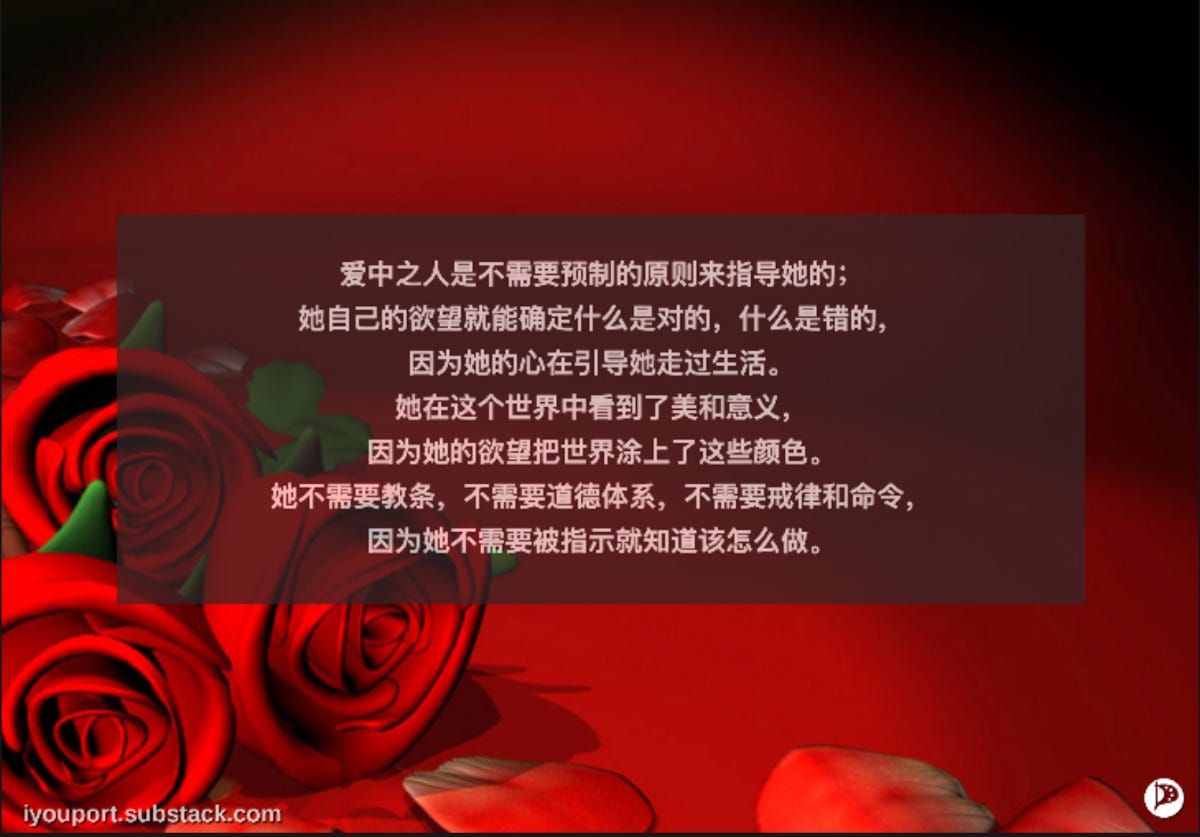
One might say that it is absurd to implore another into love—that one either loves or does not love, and that is not a choice that can be made consciously. Emotions do not follow the dictates of rational thought. But the environment in which we have to live has a great influence on the emotions of each of us, and we can make rational decisions that affect this environment. It should be possible to change an environment that is hostile to love into one that encourages it through our efforts. Our task must be to design our world to be a world where people can and do fall in love, thus reconfiguring humanity so that we are ready for the "revolution" that these pages speak of - so that we Find meaning and happiness in life.
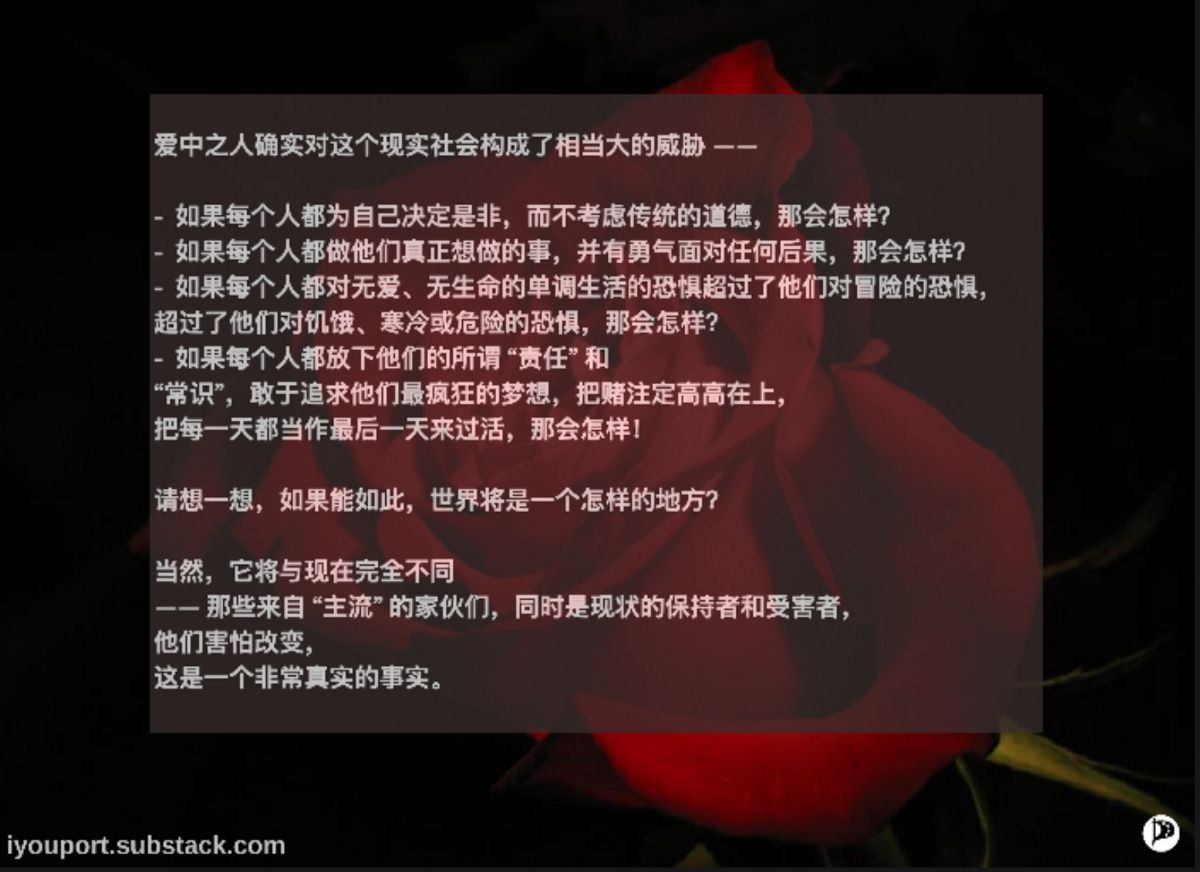
🏴️
Like my work? Don't forget to support and clap, let me know that you are with me on the road of creation. Keep this enthusiasm together!

- Author
- More